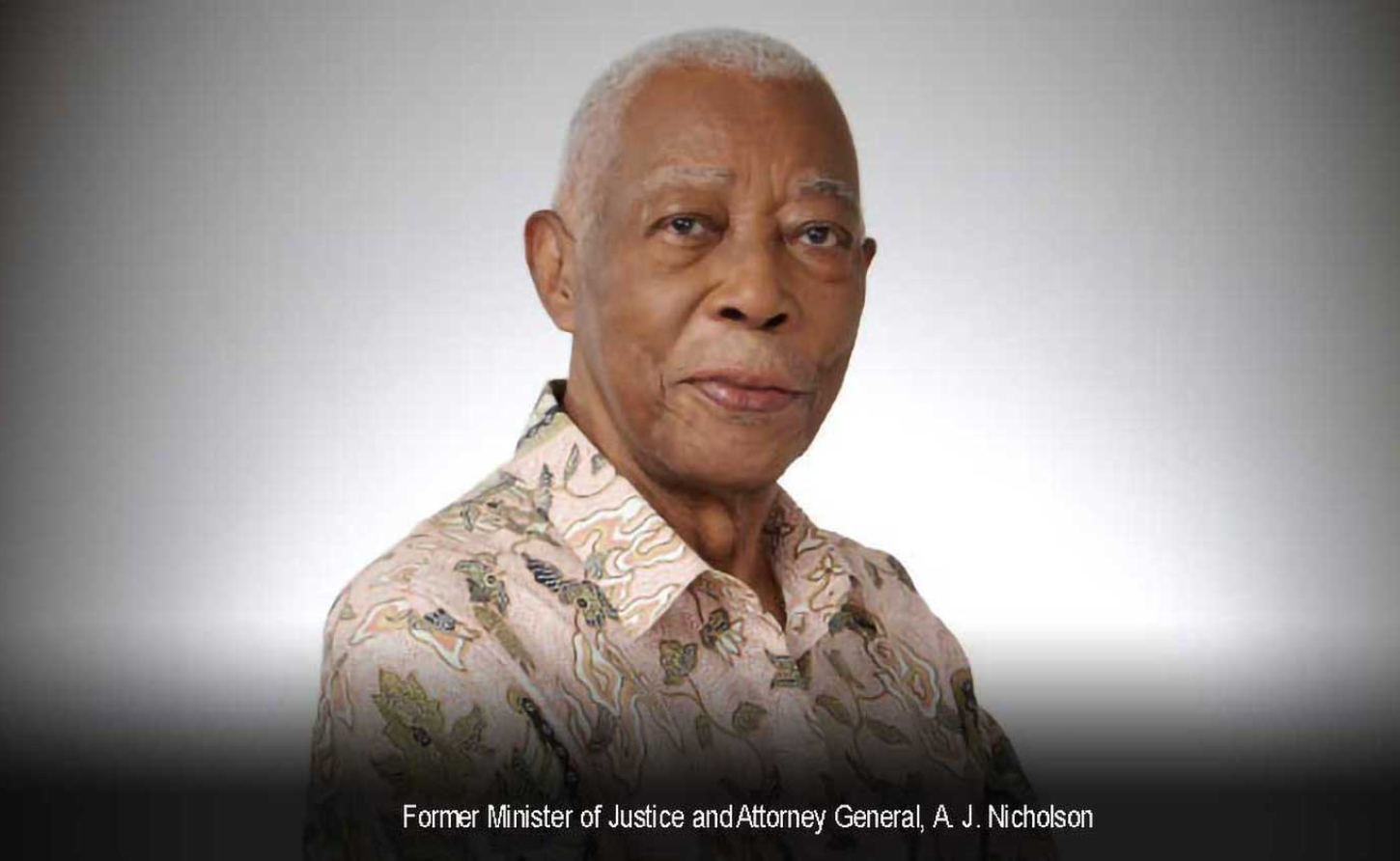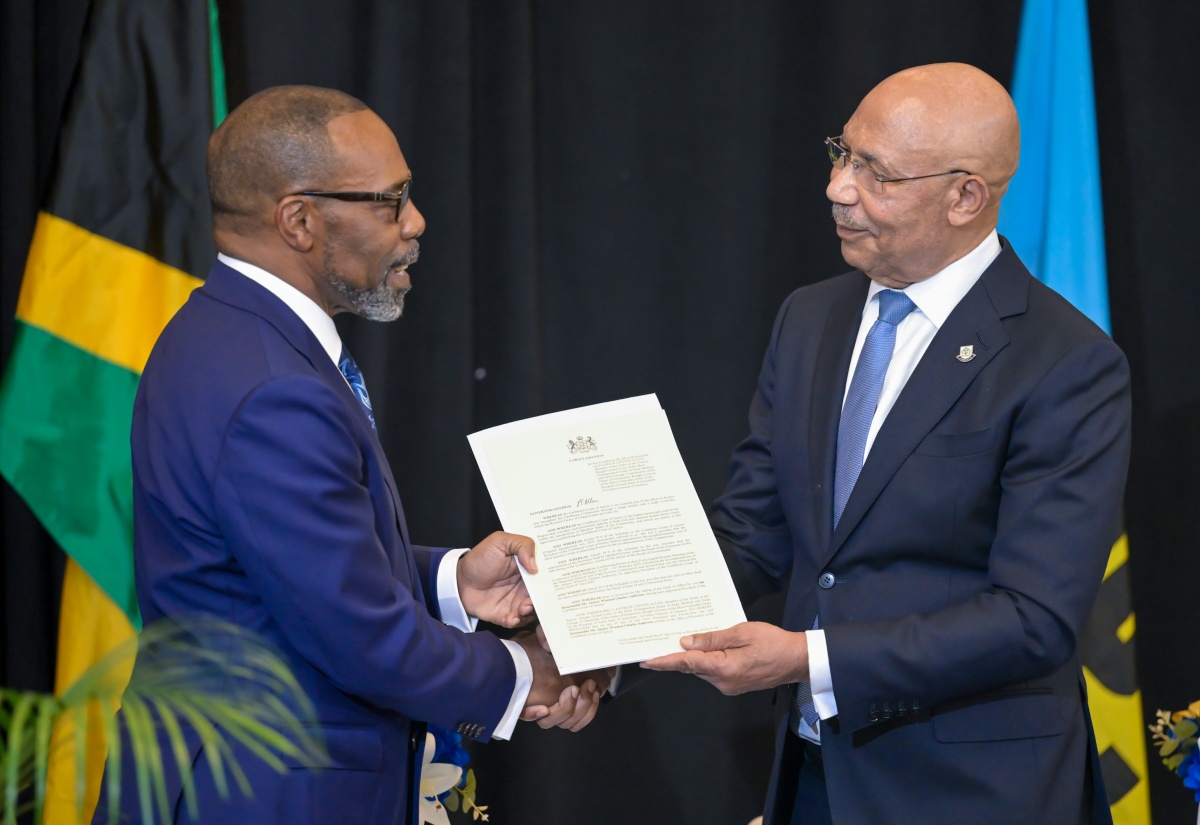JAMAICA | Has Jamaica's Andrew Holness' Leadership Crossed the Rubicon of Anti-Regionalism

On Sunday, July 6, 2025, at Montego Bay, the Governor General conducted the installation of a distinguished Jamaican jurist as president of the reachable regional final appeal court to which Jamaica is bound by treaty to accede.
In doing so, he was representing Jamaica's head of state, King Charles III, to whose largely inaccessible Privy Council Jamaicans remain attached.
That amalgam of circumstances cemented Jamaica's mystifying place in a companionless corner among the community of nations.
The prime minister should know that continuing to dodge the country's treaty obligation will regrettably serve to fortify the query: Has Jamaica, under Andrew Holness' leadership, crossed the Rubicon of anti-regionalism?
This invites the contemplation that even as we passionately deplore the British treatment of our forbears, dutiful analysis of how today's leaders treat their own people, their employers, is obligatory, and revealing.
Public declaration by the head of government that an Opposition is "unnecessary" in the constitutional construct exposes the kind of Strongman autocratic playbook thinking which ought not simply to be just brushed aside.
While it is beyond debate that he has not by any means been well served by his retinue of government legal advisers over the years, Andrew Holness had quickly signalled his own approach when he was ushered into top leadership of government in 2011 after 4 years as a Cabinet member.
He soon became Opposition Leader and immediately laid down a telling, defining marker.
The courts found that he straightway proceeded to commit the most outrageous breach of the Independence Constitution by the use of signed undated resignation letters from aspiring senators, meddling with provisions that govern membership of the Senate in order to defeat a transition initiative to the Caribbean Court of Justice.
Whether on his own accord or by a guiding hand, by that unprecedented unpardonable act, he had steered Jamaica, by unconstitutional means, into a companionless corner.
Unrepentant, under his watch, the 'access-to-justice-denied' position has now become concretised in Montego Bay.
Lest we forget! Early along the Independence journey, in 1970, at a Regional Heads of Government meeting in Kingston, the Hugh Shearer-led government, exhorted by regional barristers, made the far-seeing commitment that to conquer lack of access, among other prevailing challenges, Jamaica would subscribe to a regional final court in substitution for the Privy Council.
Fifty five years later, in 2025, all the stars have become irresistibly aligned:
* The 1970 dream of the regional final appeal court had come alive and was globally-acclaimed, gratifyingly;
* The Court was already serving five sister jurisdictions from which not an ounce of adverse criticism had come;
* Jamaica's financial obligation had been fully met; and
* An eye-openingly historic feature of a Jamaican jurist to be installed as President.
Would Prime Minister Mia Mottley, for example, not have been fully justified in harbouring a hope, indeed an expectation, that at the upcoming Heads of Government meeting on Jamaican soil, there would be a transformational leap forward?

In short, his government is on the side of the wealthy, the privileged, as the British government was, at Emancipation.
This is where the unsettling journey with Andrew Holness, prime minister since 2016, has landed Jamaica, with bizarre happenings taking place every step of the way.
In 2017, the Dominican Republic was reeling from an international hammering after their Constitutional Tribunal had condemned thousands of Black Haitians to statelessness.
Unfathomably, Andrew Holness' new government considered the moment quite appropriate to confer upon President Danilo Medina Jamaica's highest honour for a foreigner, the Order of Excellence.
Barbadian David Comissiong, in a signpost letter to The Gleaner, lamented: "Prime Minister Holness and his administration are guilty of an act of infamy and have seriously undermined the historic and sacred mission of the Jamaican and Caribbean people to be champions of Black dignity and human rights".
Venezuela's landmark generosity of energy concessions has been met with expected sincere gratitude from other Caribbean states, accentuating Jamaica's self-positioning in the friendless corner, far removed from the golden years of friendliness pioneered by Simon Bolivar.
No Commonwealth nation has witnessed such a clumsy display of discourtesy as seeking to deprive African sister states of the opportunity due to one of their number to occupy the position of Secretary General in short order, moreover with no vacancy existing in the seat.
Announcement of the challenge caused uneasy whispering that the effort was being driven from an external source. Yet, it did strike the impartial observer as a doomed initiative.
With Jamaica having given no such indication at the recent regional meeting where the issue was ventilated, then CARICOM Chairman, Prime Minister Gaston Browne of Antigua and Barbuda, decried the move as "a monumental error".
The courts have routinely ruled against the Holness government in a deluge of complaints and there is no sign of any attempt at redemption. On the contrary!
Consider this! A law minister and a military man proclaim that fundamental rights to which citizens are constitutionally entitled may be abridged in the fight against crime.
Not only has no corrective comment come from any section of the government, but the sentiment is ostensibly fully embraced, what with both being appointed to co-chair a Constitutional Reform Committee, no less.
Obviously, that was the injurious thinking, the mindset, which anchored and propelled the unconstitutional utilization of emergency powers as everyday crime-fighting tools.
Prime Minister Holness presumably regarded warnings against such use coming from the "unnecessary" Opposition as "useless". The court disagreed, mercifully!
By such unlawful, immoral and unconstitutional overreach, his administration is guilty of:
* Paying scant regard to justice issues, unforgettably, the 'access denied' inequity - some say 'embarrassment', others say 'disrespect';
* Blatant inappropriate conduct that has scarred relations right across the region, hopefully not irreversibly; and
* Tactlessness in dealings with international partnerships.
Those, and more - the frequent 'illicit enrichment' bulletins, for example - sit squarely within the pattern of abysmal disloyalty to the vast disempowered majority.
That is what has fueled the injudicious approach of this Holness administration, pushing Jamaica relentlessly into that remote companionless corner.
Considering the treatment that our forbears received from the British, is it not woeful, baffling how present-day government leaders choose to treat their own?
Jamaicans' agonising journey with the Andrew Holness administration has left us collectively diminished - culturally, generationally!
AJ Nicholson
